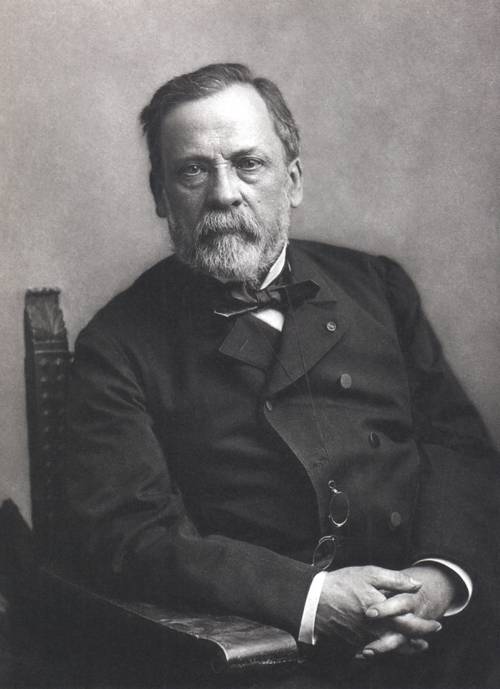
FAQ About Louis Pasteur

Who was Louis Pasteur?
Louis Pasteur was a renowned French chemist and microbiologist known for his groundbreaking work in the fields of chemistry and microbiology during the 19th century. He is best known for developing the principles of vaccination, microbial fermentation, and pasteurization. His research laid the foundation for many scientific advances in preventing and treating diseases.

What is germ theory and how did Louis Pasteur contribute to it?
Germ theory is the scientific principle that microorganisms are the cause of many diseases. Louis Pasteur was instrumental in developing this theory by demonstrating that microorganisms were responsible for fermentation and spoilage processes. His experiments in the 1860s and 1870s proved that many diseases were caused by germs, leading to revolutionary changes in medical and surgical practices to prevent infections.

What is pasteurization and why is it important?
Pasteurization is a process developed by Louis Pasteur where liquids such as milk are heated to a specific temperature for a set period to kill harmful microorganisms without affecting the nutritional value or taste of the liquid. This process is important for preventing foodborne illnesses and extending the shelf life of products like milk and juice.

How did Louis Pasteur impact the development of vaccinations?
Louis Pasteur's research led to the development of several vaccinations. He discovered how to weaken pathogens, allowing the body's immune system to fight off diseases without causing the disease itself. His work on the rabies vaccine was particularly groundbreaking, as it showcased a therapeutic method to prevent viral diseases.

What was the significance of Louis Pasteur's rabies vaccine?
The rabies vaccine was one of Louis Pasteur's most significant contributions. In 1885, he successfully inoculated a young boy exposed to rabies with his experimental vaccine, saving the child's life. This success marked a huge milestone in medicine and demonstrated the potential of vaccination in combating viral infections.

Did Louis Pasteur invent any laboratory techniques still in use today?
Yes, Louis Pasteur developed several laboratory techniques that are still fundamental today. Particularly, he refined the process of culturing microorganisms in a laboratory setting, and he established the methods for sterilizing equipment. These techniques are foundational in modern microbiology and laboratory practices.

What personal challenges did Louis Pasteur face in his career?
Louis Pasteur faced several personal challenges throughout his career. He suffered a severe stroke in 1868, which left him partially paralyzed. Despite this, he continued his work in the lab with the help of colleagues and assistants. His perseverance and dedication to scientific discovery were evident despite his physical limitations.

How did Louis Pasteur's work affect public health policies?
Pasteur's work had a profound impact on public health policies. His germ theory of disease revolutionized the understanding of sanitation, leading to the implementation of improved public health measures such as sterilization, vaccination programs, and the pasteurization of milk to prevent disease outbreaks.

What were some of the early applications of Pasteur's discoveries?
Early applications of Pasteur's discoveries included the development of vaccines for anthrax and rabies, the implementation of pasteurization processes in the food and beverage industry, and enhanced hygiene practices in hospitals and clinics to prevent infections.

How did Louis Pasteur's findings influence the field of chemistry?
Louis Pasteur's research greatly influenced the field of chemistry, particularly with his studies on stereochemistry. He discovered molecular asymmetry and demonstrated that organic molecules could exist in mirror-image forms. This was a critical advancement in understanding molecular structures in biological chemistry.

What is molecular asymmetry and what did Pasteur discover about it?
Molecular asymmetry refers to molecules that cannot be superimposed on their mirror images. Louis Pasteur was the first to recognize the importance of asymmetry in organic compounds. In 1848, he showed that tartaric acid crystals could exist in two forms that are mirror images of each other, highlighting the concept of chirality in chemistry.

Did Louis Pasteur have any rivals or notable critiques during his career?
Yes, Louis Pasteur faced skepticism and rivalry from some contemporaries. Notably, he had professional disagreements with scientists such as Claude Bernard and Robert Koch. Despite critiques, Pasteur's rigorous methods and successful experiments ultimately validated his scientific contributions.

How did Pasteur influence the economic sectors such as wine and silk industries?
Pasteur had a significant impact on industries like wine and silk. He identified the microbial causes of spoilage in wine, which improved fermentation and preservation methods. Similarly, his studies on silkworm diseases helped save the silk industry in France by identifying pathogens affecting the silkworms and suggesting measures to control them.

What institutions did Louis Pasteur found or influence during his lifetime?
Louis Pasteur founded the Pasteur Institute in 1887, which became a crucial center for the study of microbiology, infectious diseases, and vaccination development. His influence extended to various scientific and medical institutions worldwide, shaping future research and public health efforts.

How did Louis Pasteur's discoveries influence modern medicine?
Louis Pasteur's discoveries laid the groundwork for modern medicine by introducing concepts such as vaccination, aseptic techniques in surgery, and pasteurization. These developments have significantly reduced infection rates, enhanced food safety, and improved public health standards globally.

What was Louis Pasteur's educational background?
Louis Pasteur pursued higher education at the École Normale Supérieure in Paris, where he earned a doctoral degree in sciences. His academic training in chemistry and physics provided a foundation for his pioneering work in microbiology and immunology.

What personal traits helped Louis Pasteur succeed in his scientific endeavors?
Pasteur's success can be attributed to his exceptional dedication, perseverance, and keen observational skills. He was known for his methodical approach to experiments and his ability to connect theoretical concepts with practical applications, which enabled him to make groundbreaking discoveries.

Did Louis Pasteur receive any awards or honors during his lifetime?
Louis Pasteur was widely recognized for his contributions to science. He received numerous awards and honors, including membership in the French Academy of Sciences and the Royal Society of London. In 1881, he was awarded the Copley Medal, one of the most prestigious scientific awards, for his research achievements.

What was the impact of Pasteur's work on disease prevention?
Pasteur's work had a profound impact on disease prevention, laying the foundation for vaccines against diseases like anthrax and rabies. His research advanced the understanding of infection and immunity, resulting in preventative strategies that significantly decreased the prevalence of infectious diseases worldwide.
